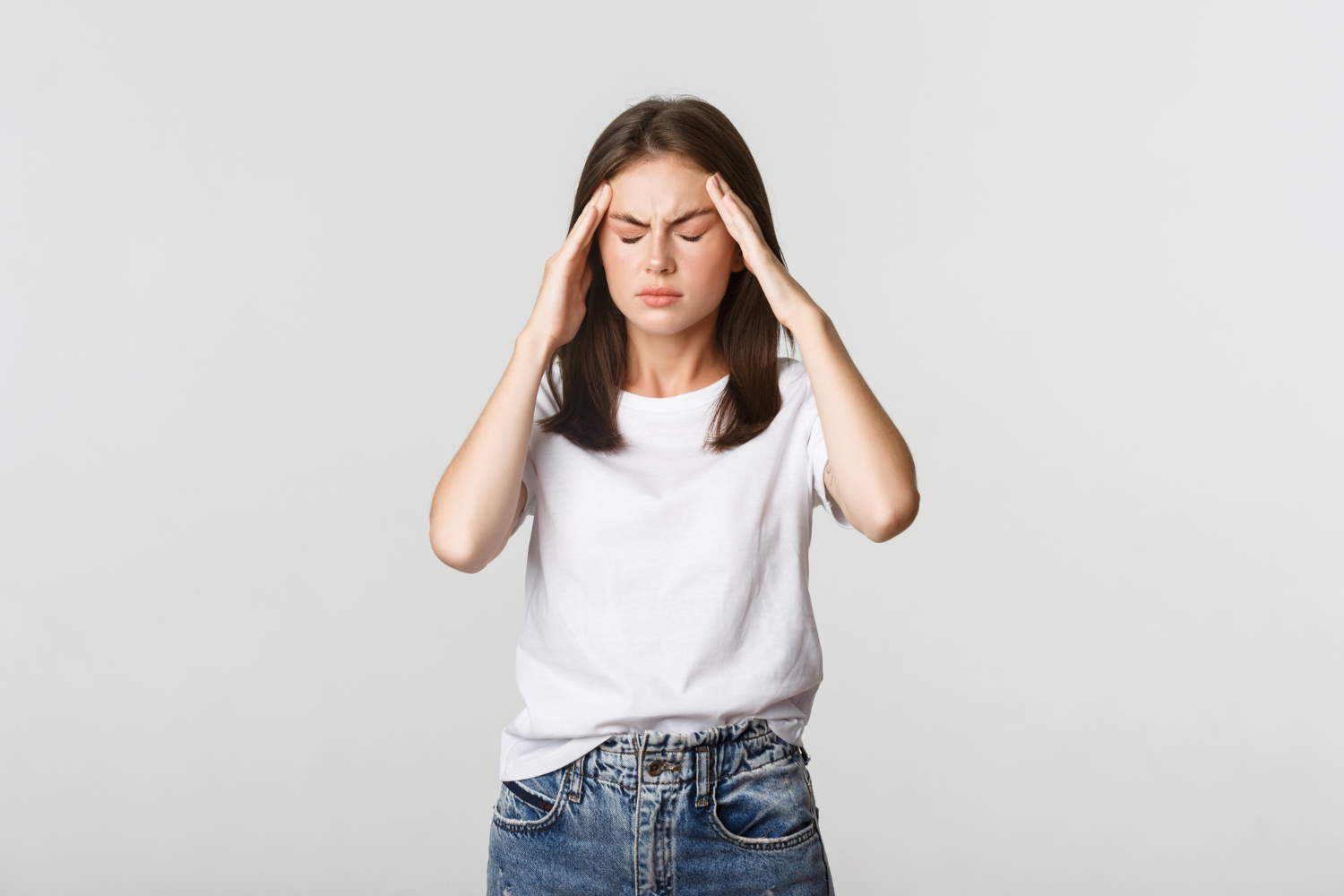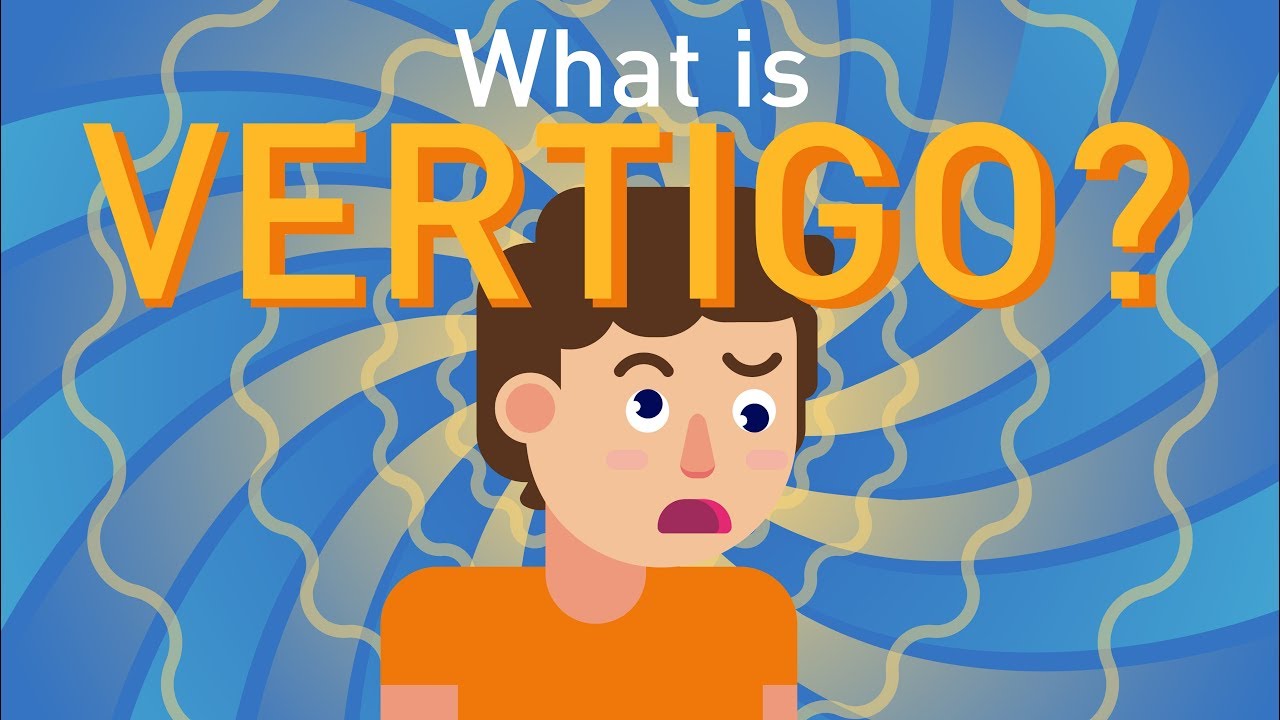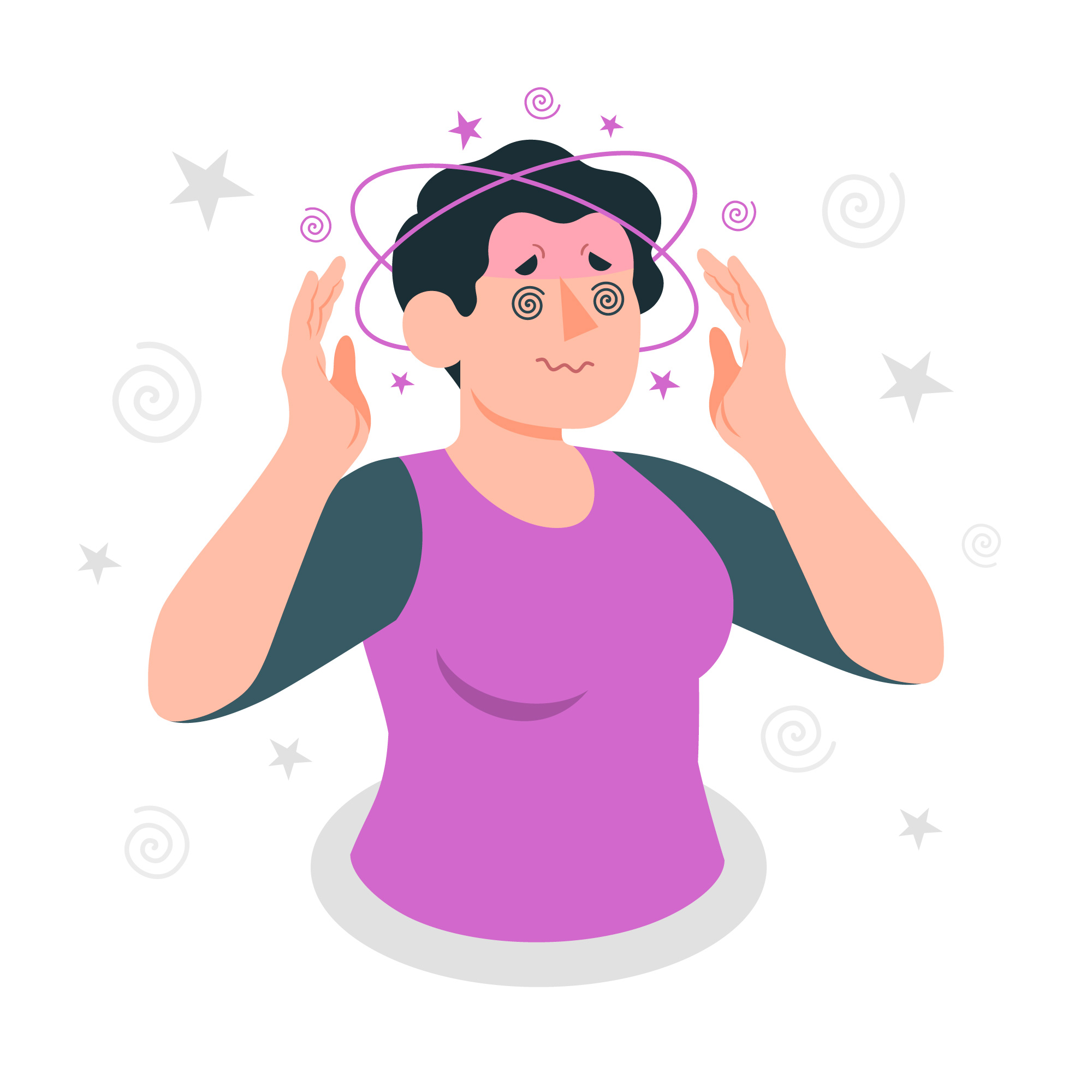Vertigo - Understanding Its Causes, Symptoms And Treatment
Vertigo is a condition characterized by a sensation of spinning and dizziness. An inner ear issue is the most typical cause of this illness. It's important to remember that vertigo is more of a symptom than a diagnosis in and of itself.
Author:Suleman ShahReviewer:Han JuDec 13, 202246 Shares1K Views

Vertigois a condition characterized by a sensation of spinning and dizziness. An inner ear issue is the most typical cause of this illness. It's important to remember that vertigo is more of a symptom than a diagnosis in and of itself. It's when you feel that you or the world around you is spinning or moving.
In some cases, you may experience just a little unsteadiness, while in others, it may be so severe that you have trouble walking and doing other routine duties. Vertigo may strike quickly and stay for only a few seconds, or it might linger for many minutes. Severe vertigo may cause debilitating symptoms that continue for days and make even basic tasks challenging.
Misuse of the word vertigo to denote a fear of heights is common. Acrophobia refers to a pathological fear of, or avoidance of, elevated locations or the vertiginous sensation experienced while gazing down from such locations.

What is Vertigo?
Vertigo Causes
Vertigo may be caused by many different syndromes and illnesses. Among them are:
- The most frequent cause of vertigo is benign paroxysmal positional vertigo (BPPV), which is usually induced by a change in head position. Patients with BPPV often report vertigo while changing positions in bed, including laying down, sitting up, and rolling over.
- When fluids build up within the ear, as they do in Meniere's disease, it may produce episodes of vertigo. Some people with Meniere's illness also have tinnitus (ringing in the ears), temporary hearing loss, or an ear fullness sensation.
- Inflammationor infection of the labyrinth in the inner ear is known as labyrinthitis. The vestibulocochlear nerve is located in the labyrinth of the inner ear and provides information to the brain about hearing, spatial orientation, and movement of the head. Headaches, ear discomfort, visual abnormalities, tinnitus, and hearing loss are common complaints among those who suffer from labyrinthitis.
- Inflammation of the vestibular nerve, also known as vestibular neuritis, is a common cause of dizziness. If you've ever had labyrinthitis, you'll recognize the symptoms of vestibular neuritis. This disorder may cause dizziness, nausea, and even temporary vision loss.
- Cholesteatoma is a benign skin growth that forms in the middle ear as a result of chronic ear infections. Hearing loss, dizziness, and vertigo are all possible side effects of cholesteatoma.
- Head or neck trauma, brain disorders including a stroke or tumor, ear damage from some drugs, and migraine headaches are also less common causes of vertigo.
Vertigo Symptoms
Vertigo is characterized by dizziness that is exacerbated by any head movement. Patients often report feeling dizzy and seeing things move around them.
Vertigo can also cause other symptoms such as increased sweating, nausea, vomiting, headache, ringing or buzzing in the ears, hearing loss, involuntary eye movements, and loss of balance. Some people may have symptoms for just a few minutes, while others may have them for many hours.
Treatment For Vertigo
Vertigo treatment should be based on the underlying medical condition. Vertigo often improves on its own without medical intervention. This is because your brain can adjust to the altered inner ear input and utilize other methods to keep your equilibrium stable.
- Therapeutic exercises for the vestibular system are a kind of physical therapyfor the vestibular system. The vestibular system's job is to inform the brain of any changes to the body's position with respect to the gravitational field. If you suffer from vertigo often, vestibular rehabilitation therapy could be a good idea. It's useful for learning to rely on your other senses while experiencing vertigo.
- In the case of BPPV, the American Academy of Neurology recommends a regimen of targeted head and body movements. These motions are carried out to shift the calcium deposits from the ear canal into a compartment inside the inner ear from where they may be absorbed by the body. You may experience dizziness when the canaliths rotate.
- Medication may be helpful in alleviating vertigo-related nausea and motion sickness. Antibiotics and corticosteroids may alleviate symptoms and treat the underlying illness or inflammation that is causing your vertigo. Diuretics (water tablets) may be recommended for patients with Meniere's disease to prevent further swelling and pressure from occurring.
- In rare instances, surgery may be the only option for treating vertigo. If a tumor or neck or brain damage is to blame for your vertigo, getting them treated may also help you feel better.
How To Cure Vertigo Permanently
Vertigo has no long-term treatment options, medical or otherwise. The symptoms of vertigo may be alleviated without the use of pharmaceuticals by using a variety of treatment modalities. The effectiveness of your symptoms may also be mitigated by a mix of therapies.
Vertigo, brought on by disorders like BPPV, may be avoided in the future with the use of supplements. Supportive treatments for vertigo include calcium, vitamin D, and ginkgo biloba.
People Also Ask
What Are The First Signs Of Vertigo?
Vertigo's early symptoms include blurred vision, dizziness, hearing loss in one or both ears, unsteadiness on one's feet (which may lead to falls), tinnitus (ringing in the ears), and nausea, vomiting, and dehydration.
How Can Vertigo Go Away?
In most cases, vertigo improves on its own. The diagnosis is necessary for treatment. If an infection is to blame, a doctor may prescribe antibiotics. Additionally, you may be provided with exercises to do in an effort to improve your equilibrium.
What Does A Vertigo Attack Feel Like?
The dizziness and spinning sensation feelings are brought on by vertigo due to a dysfunction in the vestibular system.
Is Vertigo A Serious Thing?
No, vertigo is not a very serious thing. However, shortness of breath, chest aches, and numbness of the face are only a few of the dangerous symptoms that might accompany vertigo.
Final Words
Many other medical disorders, such as infections, migraines, and accidents, may bring on vertigo. The best strategy to alleviate symptoms and prevent them from returning is to treat whatever is triggering your vertigo in the first place.
If vertigo persists, it may be a sign of a more serious problem rather than a diagnosis in and of itself. To some extent, home remedies for vertigo may help. However, if vertigo attacks persist, you should seek treatment. Your primary care physician may be able to provide a diagnosis, or they may suggest that you see a neurologist or otolaryngologist for additional testing.

Suleman Shah
Author
Suleman Shah is a researcher and freelance writer. As a researcher, he has worked with MNS University of Agriculture, Multan (Pakistan) and Texas A & M University (USA). He regularly writes science articles and blogs for science news website immersse.com and open access publishers OA Publishing London and Scientific Times. He loves to keep himself updated on scientific developments and convert these developments into everyday language to update the readers about the developments in the scientific era. His primary research focus is Plant sciences, and he contributed to this field by publishing his research in scientific journals and presenting his work at many Conferences.
Shah graduated from the University of Agriculture Faisalabad (Pakistan) and started his professional carrier with Jaffer Agro Services and later with the Agriculture Department of the Government of Pakistan. His research interest compelled and attracted him to proceed with his carrier in Plant sciences research. So, he started his Ph.D. in Soil Science at MNS University of Agriculture Multan (Pakistan). Later, he started working as a visiting scholar with Texas A&M University (USA).
Shah’s experience with big Open Excess publishers like Springers, Frontiers, MDPI, etc., testified to his belief in Open Access as a barrier-removing mechanism between researchers and the readers of their research. Shah believes that Open Access is revolutionizing the publication process and benefitting research in all fields.

Han Ju
Reviewer
Hello! I'm Han Ju, the heart behind World Wide Journals. My life is a unique tapestry woven from the threads of news, spirituality, and science, enriched by melodies from my guitar. Raised amidst tales of the ancient and the arcane, I developed a keen eye for the stories that truly matter. Through my work, I seek to bridge the seen with the unseen, marrying the rigor of science with the depth of spirituality.
Each article at World Wide Journals is a piece of this ongoing quest, blending analysis with personal reflection. Whether exploring quantum frontiers or strumming chords under the stars, my aim is to inspire and provoke thought, inviting you into a world where every discovery is a note in the grand symphony of existence.
Welcome aboard this journey of insight and exploration, where curiosity leads and music guides.
Latest Articles
Popular Articles
